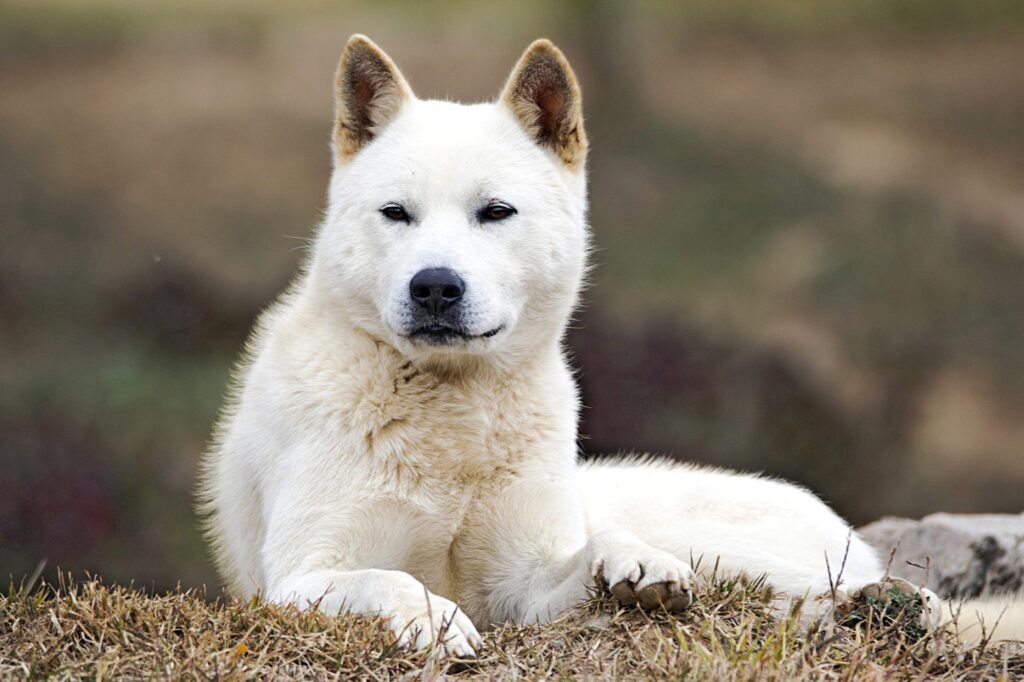The Korean Jindo Dog is a captivating breed known for its unwavering loyalty, agility, and striking appearance. Originating from the Korean peninsula, this ancient breed has captured the hearts of dog lovers worldwide with its remarkable temperament and historical significance. Whether you’re considering adding a Jindo to your family or simply interested in learning more about this unique breed, understanding its history, traits, and care requirements is essential. In this article, we delve into everything you need to know about the Korean Jindo Dog, exploring its origins, physical characteristics, temperament, health considerations, and training tips.
Origins and History of the Korean Jindo Dog
The Korean Jindo Dog is believed to have existed for over a thousand years on the island of Jindo in South Korea. Renowned for their hunting prowess and hunting dogs, the Jindos were initially bred as versatile working dogs, excelling in hunting and guarding. Their history is deeply intertwined with Korean culture and folklore, often symbolizing loyalty, fidelity, and resilience.
Historically, the breed was used for hunting large game, such as deer and boar, showcasing its strength and agility. It also served as a guardian of homes and livestock, making it highly valued in rural communities. Due to its limited breeding outside of Korea for many years, the breed remained relatively pure and distinct.
In the 20th century, efforts were made to preserve the breed amid modernization, and today, the Jindo is recognized as a national treasure of South Korea. International recognition and breeding programs have helped the breed gain popularity worldwide, as it is appreciated for its unique qualities and independence.
Physical Characteristics of the Jindo Dog
The Korean Jindo Dog is a medium-sized breed, renowned for its elegant yet muscular physique. Adult males typically weigh between 45 and 55 pounds (20 and 25 kg), with females slightly smaller. Their height ranges from 18 to 21 inches (45 to 55 cm) at the shoulder.
Distinctive Features:
Coat and Colors: The Jindo has a short, dense double coat that offers protection against harsh weather conditions. Their coat is generally smooth and lies flat against the body. The breed comes in various colors, including white, fawn, red, black, and brindle. White is the most common and highly prized color in Korea.
Head and Face: They have a wedge-shaped head with a well-defined stop. Their eyes are small, dark, and almond-shaped, giving an alert and intelligent expression. Ears are triangular and stand erect.
Tail: One of the breed’s most striking features is its tail, which is curled tightly over the back, a hallmark of the breed. The tail is bushy and expressive of the dog’s mood.
The Jindo has a lean, athletic build that reflects its active nature. Its legs are straight and muscular, making it well-suited for running and jumping.
The breed’s appearance exudes agility and elegance, making it a striking presence in both city and rural settings.
Temperament and Personality Traits
The Korean Jindo Dog is renowned for its loyalty, independence, and intelligence. These qualities make it an excellent companion, but they also require understanding and proper training.
Loyalty and Bonding: Jindos are fiercely loyal to their families, often forming strong bonds with their owners. They are known to be protective and can be reserved or aloof around strangers, making them excellent watchdogs.
Independence: Unlike some breeds that seek constant attention, Jindos tend to be self-reliant and can enjoy solitary activities. This independence, however, can sometimes be mistaken for stubbornness.
Intelligence: Highly intelligent, Jindos quickly learn commands and are capable of problem-solving. They thrive on mental stimulation and benefit from training that challenges their mind.
Temperament with Children and Other Pets: Jindos are generally good with children they are raised with, displaying patience and gentleness. However, their territorial instincts mean they may be wary of unfamiliar animals or pets, especially if not socialized properly from a young age.
Exercise and Activity Needs: As an energetic breed, Jindos require regular exercise, including daily walks and active play. They excel in agility, obedience, and even dog sports.
Potential Challenges: Their strong independence and alert nature can make them cautious or reserved with strangers. Early socialization and consistent training are essential to prevent behavioral issues.
Health and Care Requirements
The Korean Jindo Dog is generally a healthy breed with a lifespan of around 12 to 15 years. Responsible breeding and proper care are crucial for maintaining their health and vitality.
Diet: A balanced diet tailored to their age, size, and activity level is vital. High-quality commercial dog food or a well-prepared homemade diet under veterinary guidance works well. Avoid overfeeding to prevent obesity.
Grooming: Their short coat requires minimal grooming. Regular brushing helps remove loose hair and keeps the coat healthy. Bathing can be done as needed, typically once a month or when the animal becomes dirty.
Exercise: Jindos are active and need ample physical and mental stimulation. Daily walks, play sessions, and agility exercises help prevent boredom and destructive behaviors.
Health Concerns: While generally healthy, some health issues may include:
- Hip Dysplasia: A common concern in many medium-sized breeds; regular vet check-ups and maintaining a healthy weight can mitigate risks.
- Patellar Luxation: Dislocation of the kneecap, which can cause discomfort.
- Eye Conditions: Such as entropion or cataracts.
Regular veterinary check-ups, vaccinations, and preventive care are vital for their well-being.
Training and Socialization Tips
Given their intelligence and independence, Jindos require consistent, positive reinforcement training techniques. Here are some tips for successful training:
- Start Early: Socialize your puppy thoroughly with people, other animals, and various environments from a young age.
- Use Positive Reinforcement: Reward good behavior with treats, praise, and playtime. Avoid harsh punishments, which can damage their trust.
- Be Patient and Consistent: Jindos may test boundaries; patience and consistency are key.
- Mental Stimulation: Incorporate puzzle toys, obedience training, and agility exercises to keep their minds engaged.
- Leash Training: They are strong and agile, so secure leashes and harnesses are essential during walks.
Socialization: Early exposure to different sights, sounds, and experiences helps prevent shyness or suspicion towards strangers. Enrolling in puppy socialization classes can be beneficial.
The Ideal Owner for a Korean Jindo Dog
The Jindo breed is best suited for owners who appreciate an independent, loyal, and active companion. They thrive in environments that provide regular exercise and mental stimulation. Due to their cautious nature, they may not be ideal for first-time dog owners without prior experience with independent breeds.
Ideal owners are patient, consistent, and committed to socializing and training their Jindo. They should also be prepared for grooming and health maintenance responsibilities. Jindos tend to bond closely with their families and may become reserved or wary if neglected or improperly socialized.
Why the Korean Jindo Dog Makes a Unique Family Member
The Korean Jindo Dog’s combination of loyalty, intelligence, and grace makes it a truly special breed. Its rich history and cultural significance add to its appeal, making it a symbol of faithfulness and resilience.
Their striking appearance and alertness make them stand out in any setting. Whether as a vigilant protector or a loving companion, Jindos bring a unique blend of independence and devotion to their families.
In recent years, the breed’s popularity has grown worldwide, with many enthusiasts appreciating its natural beauty and noble personality. Proper care, training, and socialization ensure that Jindos become well-adjusted and loving family members.
The Korean Jindo Dog is more than just a beautiful breed; it embodies a deep cultural heritage and traits that make it a loyal and intelligent companion. If you’re ready to meet the needs of an active, independent, yet affectionate dog, the Jindo can be a rewarding addition to your life.
By understanding their history, physical traits, temperament, and care needs, prospective owners can foster a strong bond with this ancient breed. With proper training, socialization, and love, the Korean Jindo Dog will reward your dedication with years of loyalty and companionship.
Interested in learning more about the Korean Jindo Dog or considering adopting one? Connect with reputable breeders or rescue organizations dedicated to preserving this remarkable breed.
We offer a FREE Strategy Call.
Click on the graphic to learn more
Read More


Therapy Dogs vs. Service Dogs vs. Emotional Support Animals: Know the Difference








